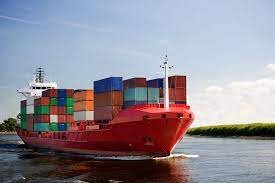Shipping goods internationally via ocean routes can be a cost-effective solution for businesses, but managing those shipping costs effectively is essential for maximising profit margins. The rising costs of fuel, tariffs, and shipping fees can eat into your profits if you’re not careful. Fortunately, there are several strategies you can employ to reduce sea freight costs on international ocean routes. Here are some valuable tips to consider.
Choose the Right Shipping Method
The first step in reducing shipping costs is to choose the appropriate shipping method. Different carriers offer various options, including Full Container Load (FCL) and Less than Container Load (LCL). If your shipment is large enough, opting for FCL can be more economical, as you pay a flat rate for the entire container. However, if your shipment is smaller, LCL may be the better choice, allowing you to share container space with other shippers.
Understanding your shipping needs and the options available will help you select the most cost-effective method for your business. Compare quotes from different carriers and consider factors like transit time, reliability, and the services they offer.

Optimise Container Space
Efficiently packing your containers can lead to significant savings. Make sure to maximise the space within the container by properly arranging your goods. This not only reduces the number of containers needed but also minimises the shipping fees associated with underutilised space.
Additionally, using standardised packaging materials can help facilitate efficient stacking and packing. Ensure that the dimensions and weights of your goods are calculated accurately to avoid unexpected charges related to dimensional weight.
Plan Shipments Strategically
Choosing the right supplier can help you reduce shipping costs. Freight is based on the port and travel time. You can choose suppliers closer to you which has a number of advantages, shorter shipping time, hence lower costs and better supply chain. Sometimes choosing the supplier from countries with trade agreements can also save huge amounts in duty and taxes.
Timing can greatly impact shipping costs. Planning your shipments around peak shipping seasons can help you avoid higher rates. For example, shipping during the off-peak season when demand is lower can result in more competitive pricing from carriers.
Moreover, consolidating shipments can help reduce costs. Instead of shipping multiple smaller loads, consider combining them into a larger shipment. This approach can optimise container space and lower the overall shipping expenses.

Build Relationships with Freight Forwarders
Working with a reliable freight forwarder can be invaluable in reducing shipping costs. Freight forwarders have established relationships with carriers and can often negotiate better rates on your behalf. They also possess extensive knowledge of international shipping regulations and can help you navigate any challenges.
By collaborating closely with your freight forwarder, you can gain insights into the most cost-effective routes, shipping methods, and any potential savings opportunities.
Stay Informed About Trade Agreements and Tariffs
Understanding international trade agreements and tariffs can have a significant impact on your shipping costs. Stay updated on any changes in trade regulations that may affect your shipments. For instance, some countries may have preferential trade agreements that allow for reduced tariffs on certain goods.
By being proactive and informed about these factors, you can make strategic decisions that lead to lower shipping costs.
If you’re importing goods into Europe, sourcing from nearby countries like Turkey, Egypt, or Morocco can be more cost-effective than sourcing from East Asia. Ports like Port of Alexandria in Egypt or Port of Istanbul in Turkey offer shorter transit times. For example, shipping from the Port of Shanghai to the Port of Hamburg takes 30-35 days, while a shipment from the Port of Casablanca to Hamburg takes just 5-7 days, cutting costs significantly.
Choosing suppliers from countries with preferential trade agreements can further reduce costs by lowering or eliminating tariffs. The EU has agreements with countries like Norway, South Korea, and Canada, offering reduced tariffs, while the USMCA agreement between the U.S., Mexico, and Canada provides duty-free benefits that save on taxes and import duties.
Here are some shipping time comparisons for key routes:
- Port of Jebel Ali (UAE) to Port of Rotterdam (Netherlands): 18-22 days.
- Port of Singapore to Los Angeles Port (U.S.): 14-18 days.
- Port of Mumbai (India) to Port of Felixstowe (UK): 25-30 days, while closer suppliers, like from Port of Lisbon (Portugal), offer faster and more cost-efficient routes.
By selecting suppliers based on proximity and leveraging trade agreements, you can significantly reduce shipping and tariff costs.
About the author
Reducing shipping costs on international ocean routes is crucial for maintaining competitive pricing and maximising profits. By choosing the right shipping method, optimising container space, planning shipments strategically, building relationships with freight forwarders like 121 Air Sea Cargo, and staying informed about trade agreements, businesses can effectively manage and reduce their shipping expenses. Implementing these tips can help streamline your shipping process and contribute to your overall success in the global marketplace.

With over 10 years of experience in the logistics and freight industry, 121 Air Sea Cargo has established itself as a reliable and cost-effective solution for businesses looking to optimise their international ocean freight operations. Their extensive industry expertise allows them to provide tailored shipping solutions, including Full Container Load (FCL) and Less than Container Load (LCL) options, ensuring that you pay for only the space you need. They maintain a well-established global network of partners, enabling competitive pricing and efficient handling of goods, while their knowledgeable team stays updated on trade agreements and tariffs to help maximise cost savings. By focusing on efficient container optimisation and offering comprehensive end-to-end logistics support, including customs clearance and timely deliveries, 121 Air Sea Cargo ensures a seamless shipping experience. Their commitment to personalised service and sustainability initiatives further distinguishes them in the industry. To learn more about how 121 Air Sea Cargo can help you reduce international ocean freight costs, call +44 0 20 8313 1777.
For further details, feel free to visit their office directly.
Place: 18-24 Brighton Road Croydon, Surrey, CR2 6AA
Phone: +44 (0) 20 8313 1777/+44 7931 471653
Email: info@121airseacargo.com
121 Air Sea Cargo Services Co LLC (Dubai)
Place: Unit 25, Dubai Industrial City, Dubai, United Arab Emirates
Phone: +971 (0) 50 425 1255/+971 (0) 56 938 4480
Email: info@121airseacargo.com



